"Serbia will not bring frozen conflict into EU"
Deputy PM Božidar Đelić stated during the lecture at in Warsaw on Monday that Serbia will not bring a frozen conflict into the EU.
Tuesday, 22.11.2011.
09:44

Deputy PM Bozidar Djelic stated during the lecture at in Warsaw on Monday that Serbia will not bring a frozen conflict into the EU. Addressing the Institute of International Relations, he noting, however, that no one can expect from Serbia to ever recognize Kosovo. "Serbia will not bring frozen conflict into EU" Djelic said that Serbia is ready to resolve the issue of Kosovo immediately, adding that the solution should be based on four points that Serbian President Boris Tadic had presented at the UN General Assembly in September. "Serbia finds acceptable a solution which is based on four points - special status for northern Kosovo, status and security for Serbian churches, monasteries and other religious sites and cultural monuments, security and safety for Serbs living south of the Ibar River, as well as solving of the issue of property of Kosovo Serbs," Djelic underlined. He stressed Serbia is ready to examine all models which may lead to a historic compromise between the Serbs and Albanians, and in that sense mentioned the Good Friday Agreement between the Republic of Ireland and Great Britain regarding Northern Ireland, as well as the models of East and West Germany, Hong Kong, Aland Islands, South Tyrol, etc. "We have considered all this, and we are ready to talk. Serbia does not want a frozen conflict, and we know we need to find a solution before we join the EU, but Serbia cannot recognize the unilaterally declared independence of Kosovo," Djelic underlined. "Serbia opposes the division of any country, whether it is Serbia or Bosnia-Herzegovina, or a part of its own territory - Kosovo. The point is to find a way to divide sovereignty and find a solution acceptable for all," Djelic said. Djelic also referred to the continuation of the Belgrade-Pristina dialogue taking place in Brussels Monday, and assessed this as the right step in the right direction. He pointed out that current tensions in Kosovo once again showed that unilateral actions do not contribute to a sustainable solution, and called on the international missions in Kosovo, UNMIK, KFOR and particularly EULEX, to remain in the status neutral mandate. "It is in no one's interest to sponsor a mono-ethnic Kosovo," Djelic underlined. According to him, Serbia is constantly being told to accept the reality that Kosovo Albanians do not want governance of Belgrade, adding, however, that another reality is that a vast majority of Kosovo Serbs do not want governance of Pristina. "It is of crucial importance that exodus of Serbs from Kosovo that occurred in 2004 does not happen again," Djelic said speaking about tensions in the north of the province. He expressed expectation that the EU member states, regardless of whether they recognize Kosovo or not, will maintain the unity displayed during the adoption of the joint resolution of Serbia, EU and UN, which enabled the opening of the technical dialogue between Belgrade and Pristina. Commenting the EU membership candidacy, which Serbia hopes to obtain in December, Djelic said that conditions defined by the European Commission are clear and possible to be fulfilled. Bozidar Djelic (Tanjug, file) "Working on consensus" Polish Secretary of State for European Affairs Mikolaj Dowgielewicz stated on Monday evening that his country was working on creating a consensus between the 27 EU member states on granting Serbia an EU candidate status on December 9, and pointed out that the EU expects concrete results of the Belgrade-Pristina dialogue. "We are working on obtaining the consent of all 27 EU member states regarding Serbia's candidacy. I hope the outcome will be positive, but we cannot provide any guarantees at the moment," Dowgielewicz told Tanjug. Dowgielewicz underlined that, when it comes to Serbia's candidacy, the EU member states "will take into account the regional cooperation, adding that relations with Pristina are of crucial importance in that sense". We have noticed a huge progress in reconciliation with Bosnia-Herzegovina and Croatia, he said, qualifying as very important the fact that Serbia is greatly contributing to peace in the Western Balkans. "The Belgrade-Pristina talks are underway, and we hope there will be concrete results. When Serbia, as potential candidate, one day becomes a full fledged member, it will not be allowed to have issues with neighbors," Dowgielewicz asserted.
"Serbia will not bring frozen conflict into EU"
Đelić said that Serbia is ready to resolve the issue of Kosovo immediately, adding that the solution should be based on four points that Serbian President Boris Tadić had presented at the UN General Assembly in September."Serbia finds acceptable a solution which is based on four points - special status for northern Kosovo, status and security for Serbian churches, monasteries and other religious sites and cultural monuments, security and safety for Serbs living south of the Ibar River, as well as solving of the issue of property of Kosovo Serbs," Đelić underlined.
He stressed Serbia is ready to examine all models which may lead to a historic compromise between the Serbs and Albanians, and in that sense mentioned the Good Friday Agreement between the Republic of Ireland and Great Britain regarding Northern Ireland, as well as the models of East and West Germany, Hong Kong, Aland Islands, South Tyrol, etc.
"We have considered all this, and we are ready to talk. Serbia does not want a frozen conflict, and we know we need to find a solution before we join the EU, but Serbia cannot recognize the unilaterally declared independence of Kosovo," Đelić underlined.
"Serbia opposes the division of any country, whether it is Serbia or Bosnia-Herzegovina, or a part of its own territory - Kosovo. The point is to find a way to divide sovereignty and find a solution acceptable for all," Đelić said.
Đelić also referred to the continuation of the Belgrade-Priština dialogue taking place in Brussels Monday, and assessed this as the right step in the right direction.
He pointed out that current tensions in Kosovo once again showed that unilateral actions do not contribute to a sustainable solution, and called on the international missions in Kosovo, UNMIK, KFOR and particularly EULEX, to remain in the status neutral mandate.
"It is in no one's interest to sponsor a mono-ethnic Kosovo," Đelić underlined.
According to him, Serbia is constantly being told to accept the reality that Kosovo Albanians do not want governance of Belgrade, adding, however, that another reality is that a vast majority of Kosovo Serbs do not want governance of Priština.
"It is of crucial importance that exodus of Serbs from Kosovo that occurred in 2004 does not happen again," Đelić said speaking about tensions in the north of the province.
He expressed expectation that the EU member states, regardless of whether they recognize Kosovo or not, will maintain the unity displayed during the adoption of the joint resolution of Serbia, EU and UN, which enabled the opening of the technical dialogue between Belgrade and Priština.
Commenting the EU membership candidacy, which Serbia hopes to obtain in December, Đelić said that conditions defined by the European Commission are clear and possible to be fulfilled.
"Working on consensus"
Polish Secretary of State for European Affairs Mikolaj Dowgielewicz stated on Monday evening that his country was working on creating a consensus between the 27 EU member states on granting Serbia an EU candidate status on December 9, and pointed out that the EU expects concrete results of the Belgrade-Priština dialogue."We are working on obtaining the consent of all 27 EU member states regarding Serbia's candidacy. I hope the outcome will be positive, but we cannot provide any guarantees at the moment," Dowgielewicz told Tanjug.
Dowgielewicz underlined that, when it comes to Serbia's candidacy, the EU member states "will take into account the regional cooperation, adding that relations with Priština are of crucial importance in that sense".
We have noticed a huge progress in reconciliation with Bosnia-Herzegovina and Croatia, he said, qualifying as very important the fact that Serbia is greatly contributing to peace in the Western Balkans.
"The Belgrade-Priština talks are underway, and we hope there will be concrete results. When Serbia, as potential candidate, one day becomes a full fledged member, it will not be allowed to have issues with neighbors," Dowgielewicz asserted.










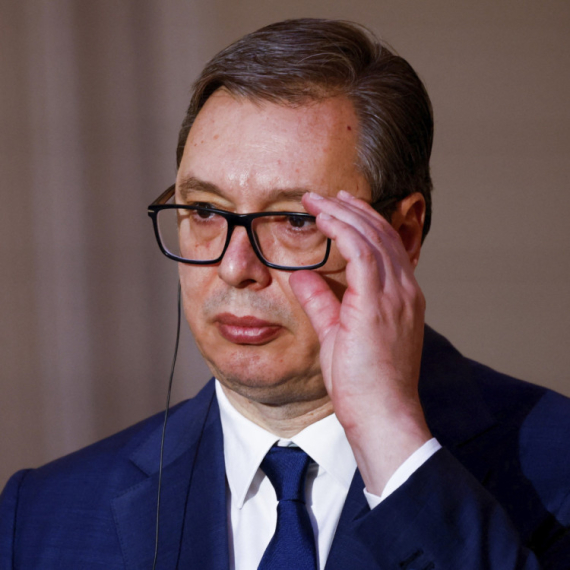
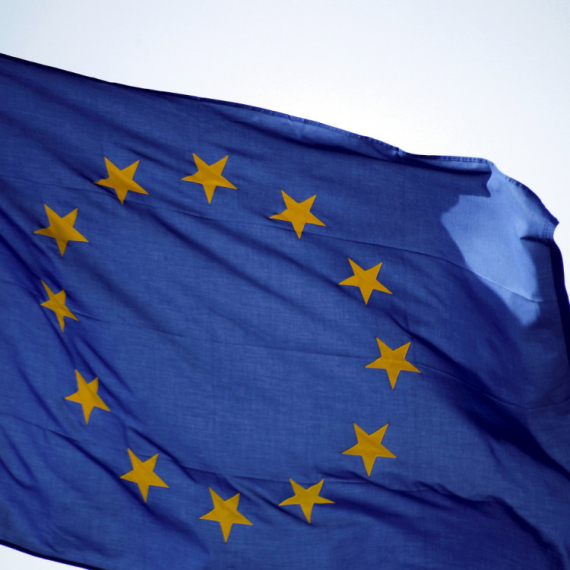


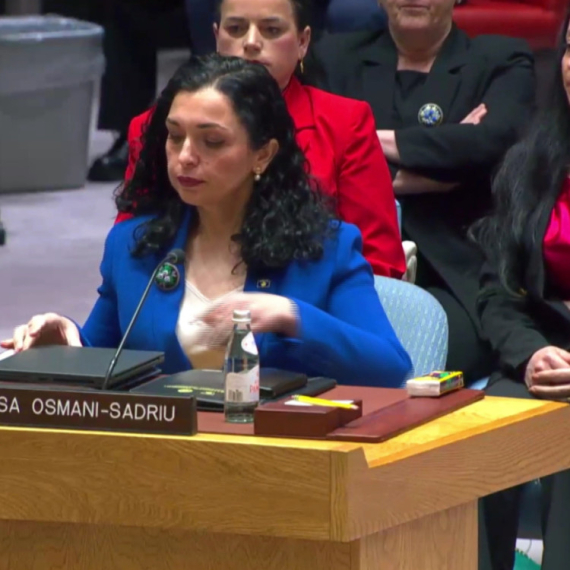











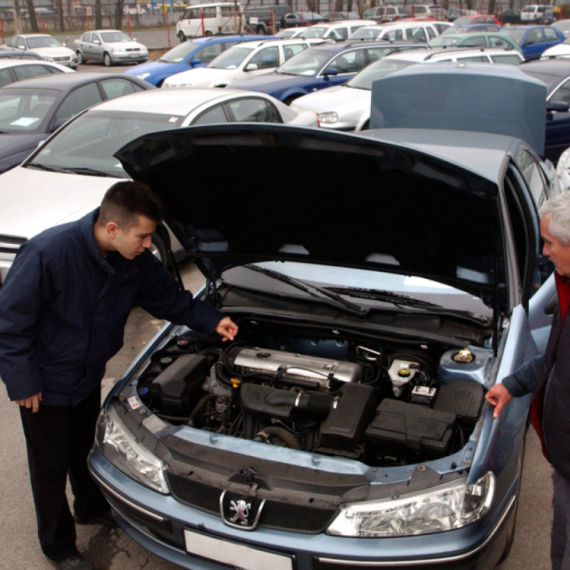







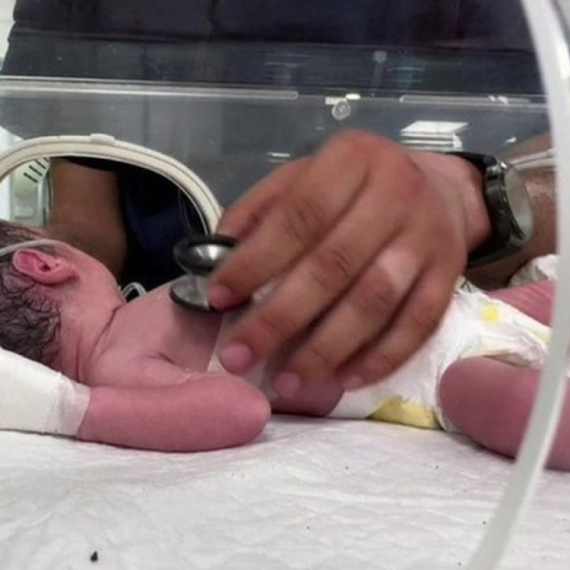

Komentari 6
Pogledaj komentare